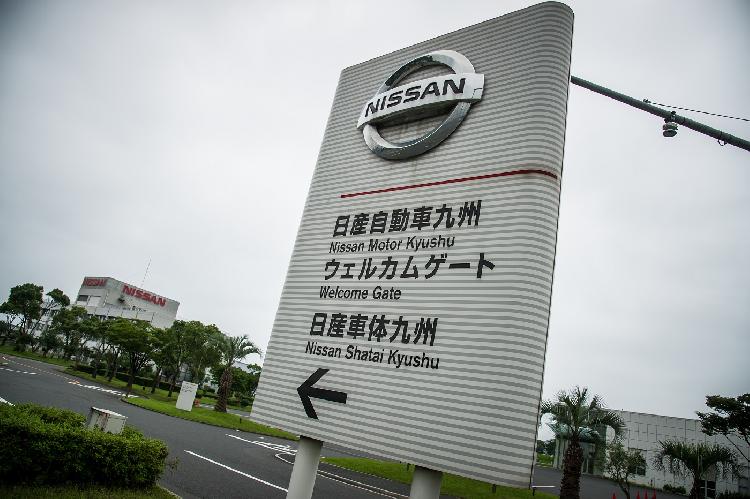
Nissan’s Kyushu plant celebrates 40 years of production
Nissan Motor Co., Ltd celebrated the 40th anniversary of its Kyushu production base and the 15 millionth vehicle produced there.
Fukuoka Prefectural Governor Hiroshi Ogawa, Nissan Chief Competitive Officer Hiroto Saikawa, Nissan Executive Vice President in charge of manufacturing Fumiaki Matsumoto, other executives and approximately 500 employees attended a ceremony at the plant to commemorate the milestones.
Nissan started producing engines in Kyushu in April 1975 and progressed to producing Datsun brand trucks the following year. As the oldest vehicle manufacturing plant in Kyushu, Nissan’s Kyushu plant has continued to expand its production line-up and increase its output, passing the 5-million-unitproduction milestone in November 1992and the 10million-unitmilestone in December 2004.
In 1992, a second production line was opened that was not only highly advanced but also designed to create a friendly and comfortable work environment. In 2000, private wharfs for shipping to domestic and overseas markets opened, which enabled the plant to manufacture, store and ship cars efficiently on the same site. In 2010, Nissan Shatai Co., Ltd, a Nissan subsidiary with strength in mixed-model production lines, also started producing in Kyushu.
In 2011, the Kyushu plant was made an independent operational company, Nissan Motor Kyushu Co., Ltd. Nissan has made the best use of the Kyushu region’s geographical advantages to further improve procurement and logistics efficiencies, with Nissan Motor Kyushu remaining a leading plant within Nissan’s production structure in terms of global cost competitiveness.
Through these expansions, Kyushu has become a key production base for Nissan, accounting for more than the half of its Japanese production volume.
Nissan also contributes to the local economy, such as through local procurement totaling about 250 billion yen per year from suppliers based in Fukuoka or the nearby area. The Nissan group, including sales companies in Fukuoka, employees about 8,000 people in the region. Nissan also focuses on strengthening ties with the local community through community outreach programs and plant tours, which about 50,000 people take per year.



























